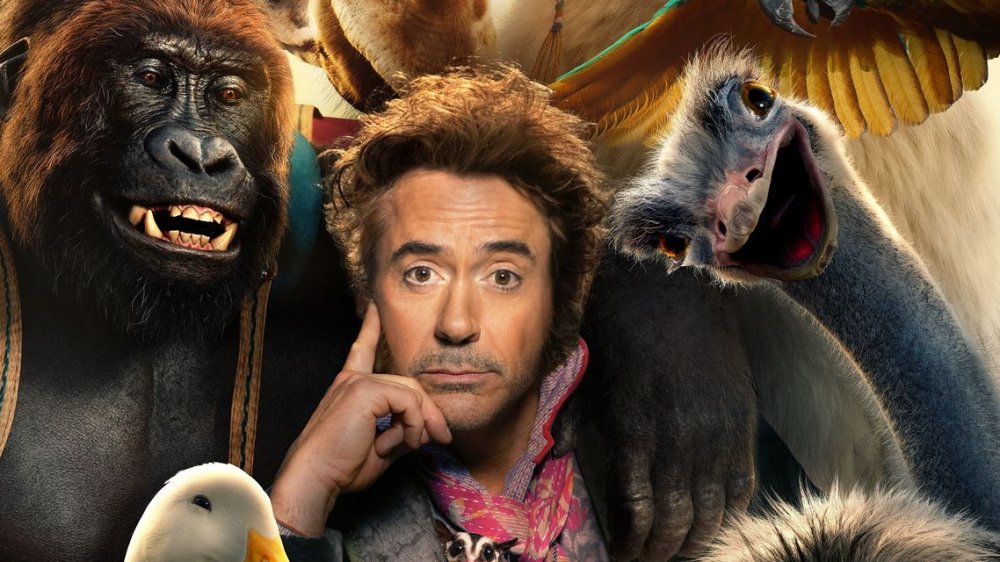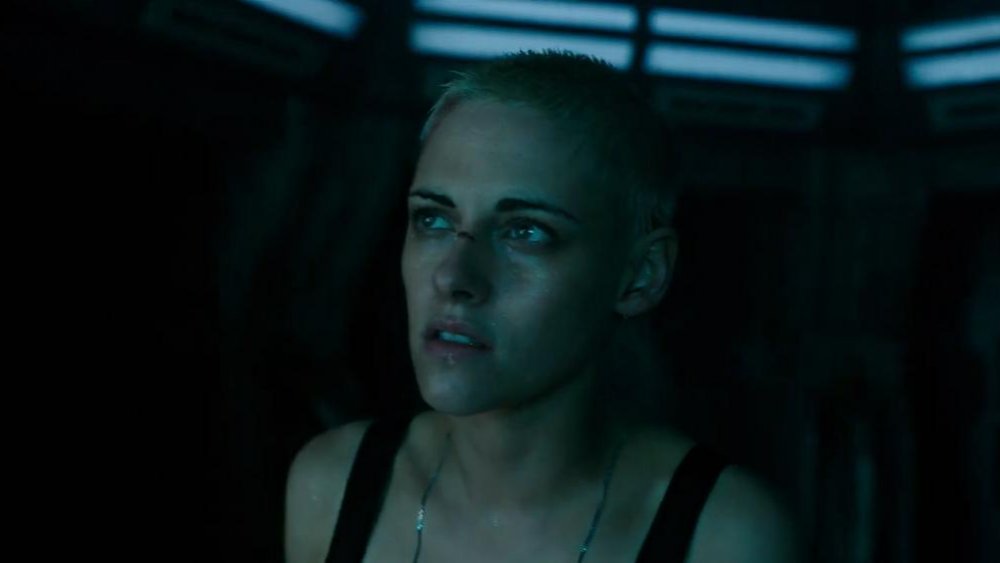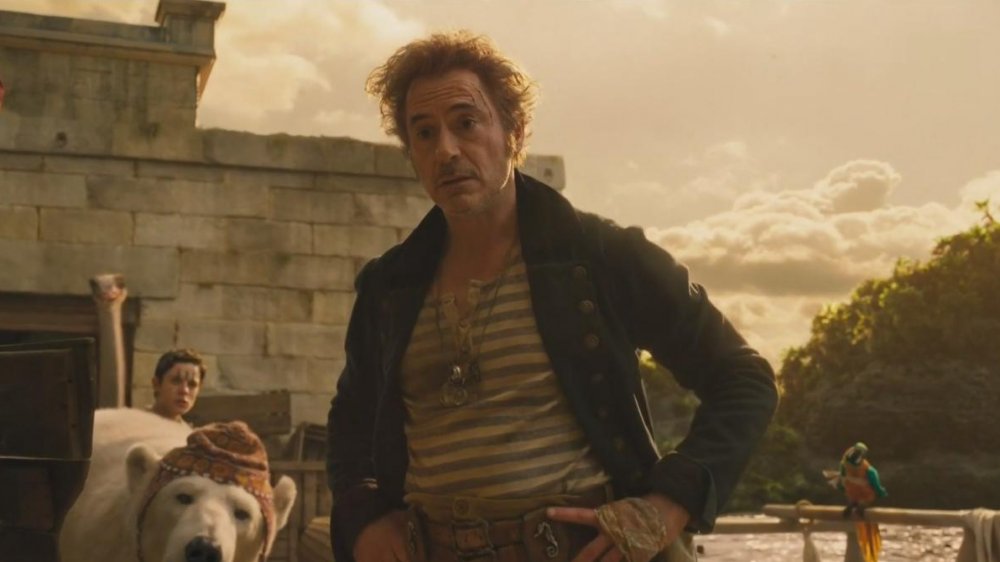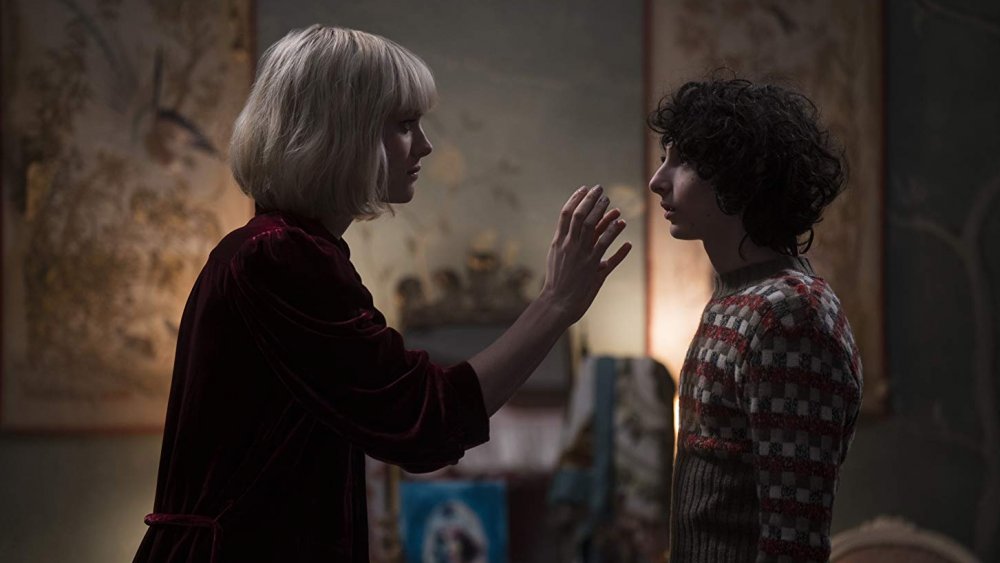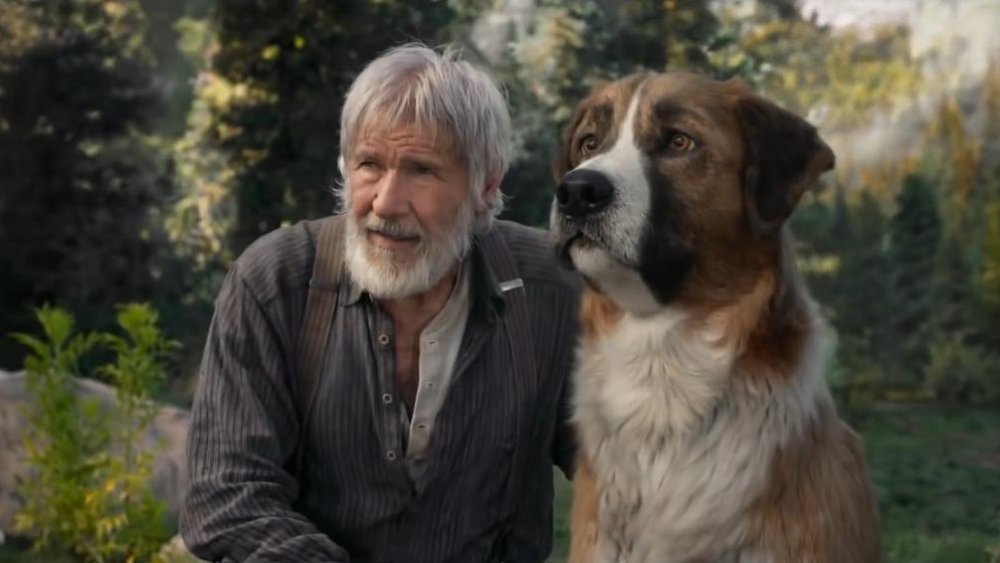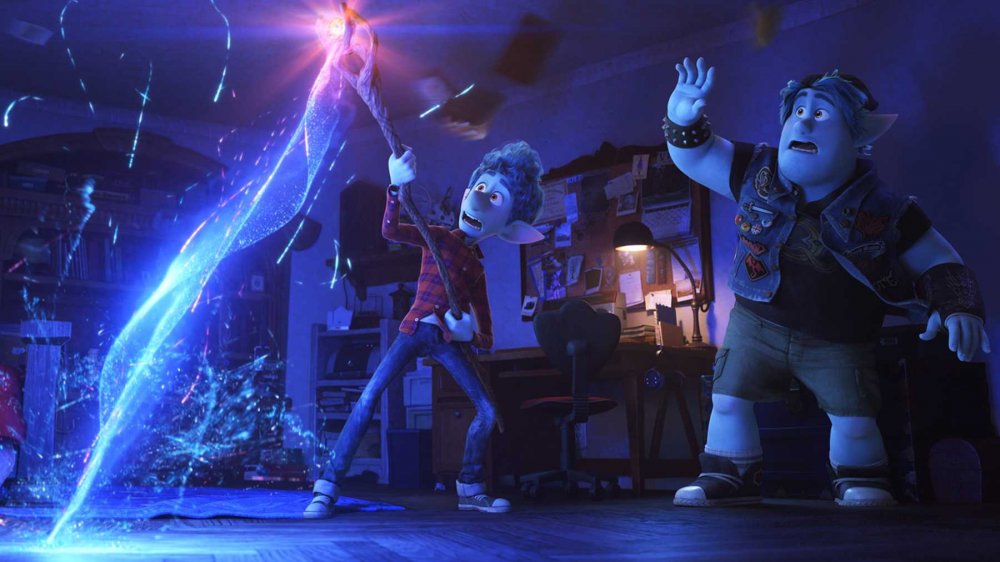Movies That Already Bombed In 2020
For every major blockbuster that comes along in any given year, there's at least one other film that absolutely flops at the box office. We all know that flops are inevitable, but they're also fascinating for any number of reasons. Sometimes a film doesn't perform well because of marketing, sometimes it's bad word of mouth, and sometimes it's just one of those films that seemed like a good idea at the time, until it became clear that no one wanted to see it.
That said, 2020 is proving to be an interesting year at the box office for an entirely different reason, in that by mid-March it started to become clear that the threat of COVID-19 around the world meant that there essentially wouldn't be a box office for a while. As the world adjusts to control the spread of a pandemic, some films have suffered from shortened box office windows, while others were victims of extremely bad timing. However it happened, these are the movies that have had a tough time at the box office so far in 2020.
Underwater
Sometimes a film just doesn't land, even when it has its defenders. That was the case with Underwater, the Kristen Stewart-led sci-fi horror film that was presented as a kind of creature feature throwback movie in the vein of films like Alien and The Abyss. The film arrived at a slow time for films anyway, in early January, and while it certainly had its fair share of critical fans early on, it garnered mixed reviews. Then, audiences just didn't seem to want to show up, and a C CinemaScore on opening weekend didn't help with that.
Underwater picked up just $7 million in the U.S. on its opening weekend, on its way to a domestic total of $17.2 million. The film did better internationally, grossing $23.5 million in various territories around the world. The eventual total, as of this writing, is just over $40 million. A lot of moderately priced horror films would love to have a worldwide total like that, but Underwater wasn't moderately priced. Its reported budget was closer to $60 million thanks to its effects-heavy production, and that meant the box office was significantly underwhelming.
Dolittle
Dolittle, an adaptation of Hugh Lofting's Doctor Dolittle stories, was Robert Downey Jr.'s first major project since his exit from the ultra-profitable Marvel Cinematic Universe he reigned over for more than a decade. It was a longtime passion project of Downey's, a film packed with stars in its voice cast, and an attempt for the MCU's godfather to use his own box office clout to deliver some magical family fun at the box office.
Unfortunately, Dolittle was a troubled production, as various rewrites and reshoots led to the budget swelling to a massive $175 million. That made it tough to recoup costs in the first place, but then audiences just didn't seem to want to show up for the film, and critics savaged it. Downey's first major post-Marvel tentpole deflated rapidly, and while there was some hope that it could gain some ground in China, the coronavirus outbreak there led to its release getting cancelled. Dolittle bottomed out at about $223.3 million worldwide, which was likely not enough to earn back the cost of promoting and producing the film. Early estimates guessed the film could lose as much as $100 million when all was said and done, but the final tally on that hasn't yet been revealed.
The Turning
Horror films are often protected from box office disaster in a way that others films aren't. For one thing, there are a lot of people who just like to see whatever the latest horror film is, regardless of what critics might say about it. For another, horror films are usually at least relatively cheap to make. Put out a film that cost $10 million, earn $40 million worldwide, turn a profit and move on. Then there are those films that just can't quite overcome lackluster marketing and poor word-of-mouth response, like The Turning.
This modern-day retelling of Henry James' Turn of the Screw was perhaps fighting an uphill battle to begin with thanks to its January release date and pushbacks on the release calendar. Then came the early response. Critics didn't like the film, and audiences didn't respond to it either. The Turning, in part because of its disappointing ending, earned a rare "F" CinemaScore grade on its opening weekend, and everyone pretty much stayed away after that. On a budget of $14 million, the film has earned just $18.4 million worldwide.
The Rhythm Section
The Rhythm Section, a Blake Lively-led revenge thriller in the vein of films like Taken, seemed to have potential to be a new badass female-driven action hit. They key word there is seemed, because the reality of the film's release ultimately spelled one of the worst box office duds ever recorded, with a number of contributing factors.
The film opened at the end of January (already a tough spot for many films) and grossed just $2.7 million domestically in its first weekend. That's the lowest box office haul for a film opening in more than 3,000 theaters ever, and one of the lowest openings of all time for a major studio release.
So, what went wrong? According to Deadline, it began with lackluster test screenings that basically convinced executives at Paramount that the film wasn't worth pouring a ton of marketing money into. Add in a lackluster critical response and an opening weekend CinemaScore of C+, and it was a film that had no real buzz and no word of mouth to speak of. The film's lackluster domestic performance meant that it barely got an international release at all, and the box office total came to just $5.9 million, losing upwards of $30 million.
The Call of the Wild
While it may seem like they rule the box office every year thanks to everything from superhero tentpoles to live-action remakes of animated classics, even Disney produces a bomb now and then. Their latest major box office disappointment (which the studio inherited in their purchase of Fox) came in the form of The Call of the Wild, the Harrison Ford-led adaptation of Jack London's novel that became known rather quickly as "that movie where Harrison Ford hangs out with a CGI dog."
The film's decision to use a motion-captured, CGI dog to play Ford's canine companion rather than a real, trained animal helped to swell the film's budget to a hefty $135 million. That's a steep box office hill to climb, and audiences didn't seem ready to help the film reach the summit. The Call of the Wild pulled in less than $25 million domestically in its opening weekend, for a worldwide total as of this writing of $107.5 million. In March 2020, box office experts estimated the film could end up losing as much as $50 million.
The coronavirus impact
Even under normal circumstances, some films just don't do well at the box office. By the middle of March 2020, though, it became clear that movies this year would be dealing with anything but normal circumstances. As the coronavirus pandemic swept across the world, movie studios and theater chains had to make some difficult decisions. Releases were delayed indefinitely, while theaters began closing to limit the spread of the virus. While several upcoming blockbusters had their release dates postponed to wait for a more opportune time, a few films already in theaters — some of them potential box office goldmines — had their box office runs severely shortened.
Onward, Pixar's latest major release, had a solid week or so on screens, pulling in $102.7 million worldwide — not bad for a start, but still well short of the total the studio may have hoped for. Meanwhile, Sony's superhero adventure Bloodshot managed $24.2 million after a March 13 opening, at a time when many people were already avoiding crowded theaters. Then there's The Hunt, a film that had already been delayed once, which pulled in just $6.3 million after its own March 13 opening, well below its budget. Faith-based drama I Still Believe opened the same weekend and fared a little better, but still came in low with $9.7 million. It's possible that future theatrical time or home releases can help studios gain some ground on these films, but again, it's just a case of bad timing. We may never know how high any of these films might have actually climbed.
